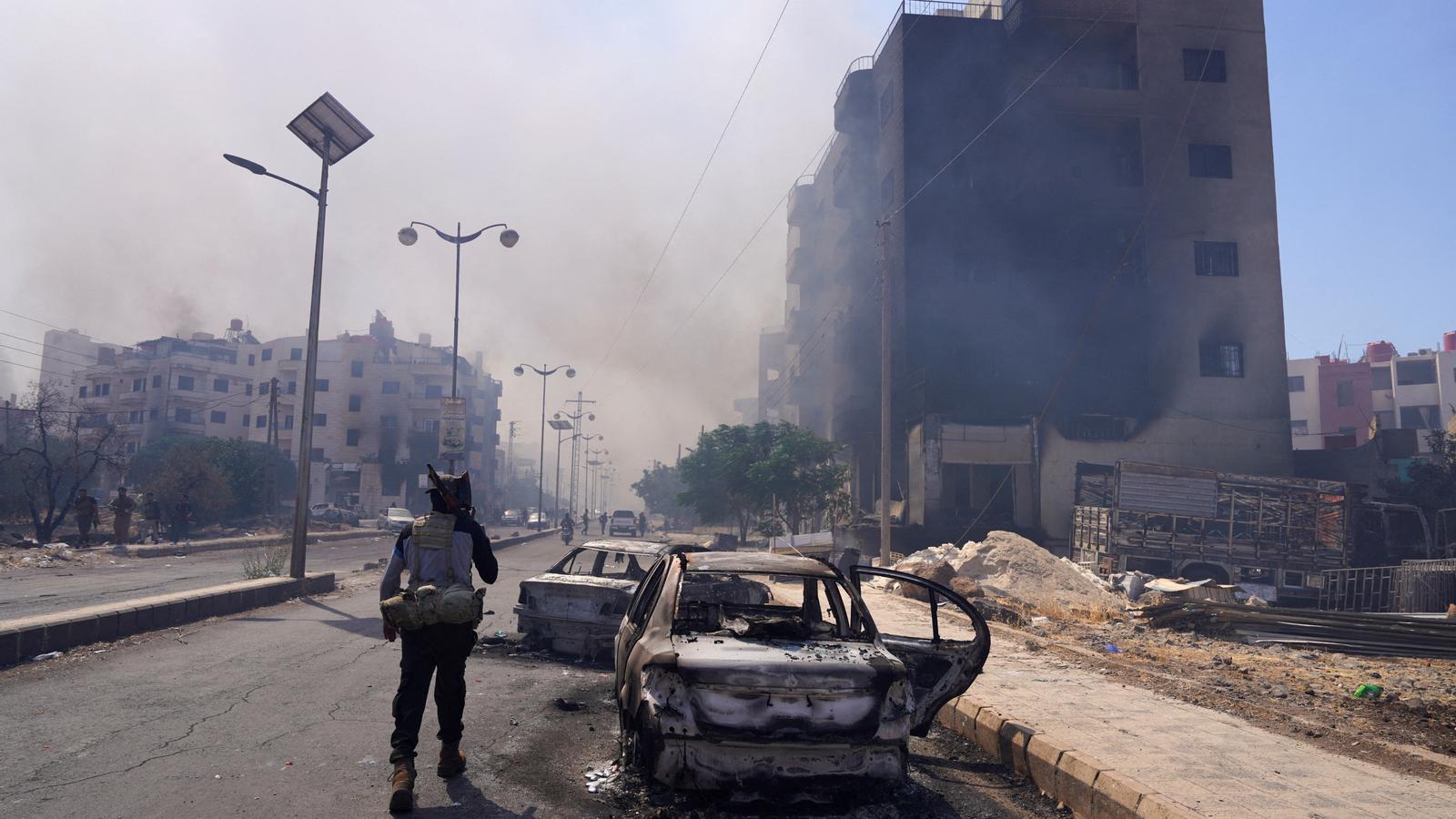The Syrian government confirms the ceasefire with Israel and sends troops back to the south.
Syrian forces are struggling to contain the fighting in Suwayda

BarcelonaThe Syrian government has redeployed its troops to the Suwayda region in the south of the country. after weeks of clashes between Bedouin and Druze groups which have left more than 600 dead. Damascus confirmed this morning a ceasefire with Israel, which had already been announced on Friday by the White House special envoy to Syria, Tom Barrack. Both the United States and Turkey support the agreement.
Interim President Ahmed al Sharaa said in a televised address that "Arab and American" mediation had helped bring calm and criticized Israel for the airstrikes against Syrian forces and Damascus during the week. In a statement, the executive defended that the ceasefire should serve "to save Syrian blood, preserve the unity of Syrian territory and the security of its people," and assured that its troops are already redeploying in the area "to ensure the implementation of the ceasefire, maintain public order and protect citizens."
Since the outbreak of sectarian violence last weekend, Suwayda province has been the scene of intense clashes between Druze fighters and Sunni Bedouin tribes, following the kidnapping and torture of a Druze merchant at a makeshift checkpoint. The intervention by Damascus regime forces, far from calming the waters, actually increased tensions: many Druze residents accused the army of complicity with Bedouin militias. Amid this escalation, Israel seized the opportunity to intervene militarily, claiming it was defending the Druze community in Syria, with which it maintains historical ties. The offensive included bombings in the south of the country and against the Ministry of Defense in Damascus.
Faced with the possibility of open confrontation with Israel, the Syrian government decided to temporarily cede control of Suwayda to the same Druze community, in an attempt to de-escalate the situation. However, the United States—which advocates for a centralized Syria under the leadership of Al Sharaa—pressed for a new ceasefire agreement. US mediation, with the tacit support of Turkey and several Arab actors, was key to reaching the agreement announced this morning.
Difficulties in implementing the ceasefire
However, the Syrian government appears to be struggling to implement the ceasefire in this predominantly Druze region. Fighting continues in Suwayda, where journalists fromAl JazeerOh Reuters On the ground, they report exchanges of machine gun and mortar fire, and government troops are struggling to access parts of the city. Although the shelling has stopped, the city's hospitals are full of wounded.
Analysts in the region say maintaining the ceasefire will be a difficult task for the state, which still has no access to the victims inside Suwayda. In addition to significant damage to the area's infrastructure, the government will have to care for the approximately 80,000 people who have fled the city to safer areas like Deraa and the desert around Suwayda, according to the International Organization for Migration.
